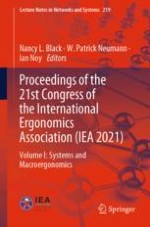2021 | OriginalPaper | Chapter
Well-Being and Efficiency in Financial Sector Analyzed with Multiclass Classification Machine Learning
Authors : Gregor Molan, Marija Molan
Published in: Proceedings of the 21st Congress of the International Ergonomics Association (IEA 2021)
Publisher: Springer International Publishing
Activate our intelligent search to find suitable subject content or patents.
Select sections of text to find matching patents with Artificial Intelligence. powered by
Select sections of text to find additional relevant content using AI-assisted search. powered by
